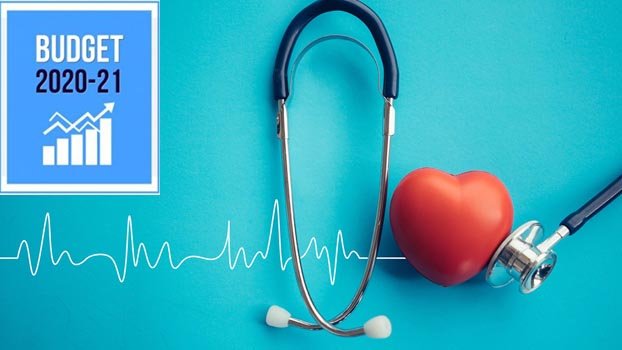Health gets top priority

Finance Minister AHM Mustafa Kamal on Thursday proposed a Tk5.68 trillion budget for 2020-21 fiscal in the Parliament, giving the health sector the ‘highest priority’ due to the coronavirus pandemic.
In his speech, he said, he had made a “slight deviation” this year from the traditional budget for the sake of “effectively combating the deadly coronavirus and resolutely overcoming its economic impact”.
A structural change has been brought in this year’s budget in terms of setting the priorities of the government, he said.
The minister also said, “The health sector is given the highest priority, and provisions have been made for this sector in the form of additional allocation, incentives, compensations, etc.”
Agriculture is the second highest priority sector, he said, before giving the outline of how to address the global pandemic and ensure healthcare service.
In terms of specific allocation, he proposed to raise the budget for the health sector by 23 percent to Tk292.47 billion, compared to the revised allocation of the current year.
Additionally, the finance minister proposed Tk100 billion to fulfill emergency requirements during this time of crisis.
Besides, he also mentioned about the emergency funds which had been disbursed to tackle the outbreak.
So far 1,049 people died of coronavirus, 78,052 cases were confirmed and 16,747 made recoveries since the detection of the first cases in Bangladesh on March 8.
“We all are aware that the whole world is in dire stress because of the Covid-19 pandemic, and Bangladesh is no exception. Like other countries in the world, public health and public life in Bangladesh are facing challenges because of the pandemic,” the finance minister added.
“We have decided to allocate additional funding and provide incentives, compensation for the health sector to ensure necessary personal safety of service providers engaged in combating Covid-19.”
This increased allocation is proposed for the health and family welfare sector giving a priority to activities undertaken to combat the Covid-19, he said, adding that currently 13 ministries and divisions are implementing programmes related to health and family welfare.
“The allocation for this purpose in FY 2020-21 is Tk 41,027 crore, which is 1.3 percent of GDP and 7.2 percent of total budget allocations,” he said.
The government expanded laboratory services, built special isolation centers and recruited additional 2,000 doctors and 6,000 nurses for the Covid-19 management.
Compensations have been declared for the frontline healthcare workers.
More health workers, including medical technologists, will be recruited soon.
The finance minister also outlined the government’s plan to ensure health services to all, and modernize the medical education system.
He said, “The experience in tackling the Covid-19 pandemic has uncovered a number of weaknesses in our health sector. As a result, the need to formulate plans to sustain our long-term achievements in this sector and prevent and combat the outbreak of similar pandemic/deadly diseases in future is being felt to take our health system to the level of developed countries.”
“Time has come to ensure a better healthcare system for the citizens of Bangladesh by assimilating the country’s public health-medical education-health services developed through our own research with the developed world’s health-education and science and technology,” he said.
“It is undeniable that we need to invent sustainable methods of combating any pandemic like corona in future and conduct proper research on epidemiology and disease control.”
“We will have to engage ourselves strongly in health science, engineering and research related tasks,” he further said.
According to the minister, “If we want to elevate ourselves to the developed country status, there is no alternative to formulating an integrated health-education and science and technology research guideline, creating funds and increasing allocation for this sector.”
“Our government’s objective is to transform the health sector by developing a research culture in the country through formulating new policies or revising existing ones in coordination among different government departments.”
“It is necessary to develop an integrated scientific research and development policy for health-education, science, technology and their research,” he said.
“The aforesaid diplomacies will act as a powerful tool, which will enable us to work in cooperation with the developed world in conducting research on health-science, importing or adopting new technologies and spreading our own technologies across the world in the coming days.”
He also proposed to form an ‘Integrated Health-Science Research and Development Fund’ of Tk. 100 crore to finance the activities for the development of research in health-education and science and technology.
“A high-powered committee consisting of experienced researchers in the health sector, nutritionists, public health experts, sociologists, economists, environmentalists, civil society and other suitable representatives will be formed to manage this Fund efficiently and effectively,” he said.
“One of the important priorities of our government is to facilitate the development of the health sector by ensuring affordable and quality health services and nutrition for all citizens with the objective of building a healthy, prosperous and happy society.
“Especially, reaching quality health services to the doorsteps of the 23 poor, rural and marginalised communities is one of the main commitments of the present government,” he said.



